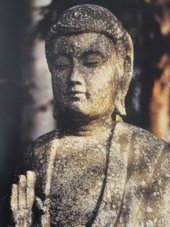Until an aspirant has not reached a certain degree of enlightenment, his spiritual practice can not truly begin. He will not understand this work nor what is at stake for him. He will simply remain prisoner with fantastic ideas and imaginations on spirituality arising from his ordinary self and containing no truth. At best, his views will represent a set of intellectual speculation on the mystery of his being and his existence, probably elaborated with good intentions, but that would be unrelated to reality. Finally, it will not lead him any closer to the realisation of his true nature and to a correct understanding of the hidden meaning of life and death.
Don’t look for results
Means to arrive at recognizing a subtle consciousness that one carry within oneself without knowing it.
Unifying body, mind and feeling
Enlightenment is not liberation
If, without really understanding what it involves, a seeker remains as he is, then each time he tries to touch these higher states again, they will last for short periods only, and, without his realizing why, he will find himself continually flung back to the level that corresponds to his degree of evolution.
If he can muster in himself the inner courage needed to face patiently and suffer again and again the truth of what he is in himself, each time he can see himself as he is, a mysterious alchemy takes place in him, creating the right and probably only condition for his transformation.
Although he will sometimes discover very distasteful things about himself, he must be careful not to brood negatively on them, forgetting the light that is eternally shining there behind them and through which they were seen.
Article published in the magazine Le Troisième Millénaire



